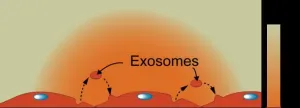(Press-News.org) ITHACA, N.Y. -- Cornell researchers have harnessed the power of baker’s yeast to create a cost-effective and highly efficient approach for unraveling how plants synthesize medicinal compounds, and used the new method to identify key enzymes in a kratom tree.
Aspirin, morphine and some chemotherapies are examples of drugs that are derived from natural compounds produced by plants. Understanding how a plant creates such compounds usually begins with analyzing plant transcriptomes to identify up to hundreds of genes that could potentially code for the enzymes that work together to facilitate production. Each gene must then be biochemically characterized using specific substrates and reaction conditions – a laborious and expensive task that stifles the discovery process.
A new yeast-based screening method detailed in the journal Angewandte Chemie captures protein-protein interactions between plant enzymes, working in tandem with other screening methods to better pinpoint which genes are ultimately responsible for how a plant biosynthesizes medicinal compounds.
“Traditional methods find groups of proteins that exist in the plant at the same time, but our method complements that by looking at which of those groups physically cluster and play well with each other,” said Sijin Li, assistant professor of chemical and biomolecular engineering and lead author of the study. “Those are the ones responsible for the type of chemicals we might want to extract for a pharmaceutical.”
Once gene candidates are predicted using plant transcriptomics, baker’s yeast – the same kind used for brewing beer and baking bread – is engineered with the genes inside to see which ones produce proteins that interact with each other. As a result, the number of genes that must then be biochemically screened is significantly reduced.
“This method had been underutilized for pathway discovery and eliminates a big bottleneck for high-throughput screening,” Li said. “It’s cheaper and safer than using chemical substrates, and it’s highly efficient and accurate.”
Li and her research group demonstrated the yeast-based method using kratom leaves. Kratom is a tropical tree native to southeast Asia and although not well studied, has gained attention from the research community because of its pharmaceutical potential, according to Li.
“It produces a chemical called mitragynine, which some people call a next-generation opioid because it has a painkilling effect without leading to dangerous respiratory depression,” said Li, who added that the U.S. Food and Drug Administration has warned against the use of kratom as it has not approved any drugs containing the tree. “Producing pure mitragynine can help lower the risks associated with using the entire kratom matrix by ultimately leading to a safer treatment.”
The yeast-based method led to the identification of six kratom enzymes from 20 candidates predicted by genetic screening to produce mitragynine or other targeted chemicals. Subsequent biochemical testing showed that none of the 14 discarded candidates were functional enzymes, while four of the six identified by the yeast-based method were functional. Li said the method’s accuracy opens the door for a more efficient discovery process and continued research on the kratom tree.
“For clinical trials, the chemical has to be purified from the plant or synthesized using a chemical approach, which is very expensive,” Li said. “Using the yeast method, we can more economically produce mitragynine and other chemicals that might lead us to new pharmaceuticals.”
The research was supported by the National Institutes of Health, the National Science Foundation, the Cornell Atkinson Center for Sustainability, the Cornell Institute for Digital Agriculture and the Cornell Center for Research on Programmable Plant Systems.
-30-
END
Yeast speeds discovery of medicinal compounds in plants
2023-10-18
ELSE PRESS RELEASES FROM THIS DATE:
Cizik School of Nursing researcher awarded $2.3M grant to evaluate post-pandemic eviction stress and mental health
2023-10-18
During the COVID-19 pandemic, eviction moratoria prevented or delayed many people from experiencing homelessness. But now that the pandemic is over and the short-term eviction protection has ended, the number of evictions and cost of basic needs have increased. Daphne Hernandez, PhD, associate professor in the Department of Research with Cizik School of Nursing at UTHealth Houston, is studying how varying periods of eviction protection that people experienced during the pandemic is associated with psychosocial ...
McWilliams School of Biomedical Informatics researchers awarded $6.4M NIH grant to develop deep learning model systems to understand mechanisms of Alzheimer’s disease
2023-10-18
A five-year, $6.4 million grant to develop an integrated, multiscale artificial intelligence (AI) approach to study genetic factors associated with Alzheimer’s disease has been awarded to UTHealth Houston by the National Institute on Aging, part of the National Institutes of Health.
A team led by Zhongming Zhao, PhD, and Xiaoqian Jiang, PhD, principal investigators and professors at McWilliams School of Biomedical Informatics at UTHealth Houston, are developing a deep-learning AI system to link brain imaging with cell-specific ...
SwRI’s Dr. Alan Stern will conduct research and experiment training in space aboard Virgin Galactic’s VSS Unity this November
2023-10-18
SAN ANTONIO — October 18, 2023 —On November 2, Dr. Alan Stern, planetary scientist and associate vice president of Southwest Research Institute’s Space Science Division, will fly aboard the Virgin Galactic commercial spaceship VSS Unity on a suborbital space mission to train for a future NASA-funded Virgin Galactic suborbital flight in which he will perform two NASA experiments in space.
“When I was a kid, human spaceflight was only available to NASA astronauts and Russian cosmonauts. Now that’s changing, and SwRI is pioneering a new era of space research being conducted in space, by space scientists,” Stern ...
More is not better: Trial finds giving more antibiotics to prevent joint replacement infections doesn't help
2023-10-18
Knee and hip replacements are increasing globally due to an ageing population. In the United States, the number of patients needing a joint replacement will exceed 2.7 million in the next 7 years. Post-surgery infections, while rare at 1-5% of patients, result in high patient morbidity and mortality.
In the United States the annual national hospital costs for treating infection are projected to exceed $1.85 billion.
We currently use an antibiotic, cefazolin, at the time of surgery to prevent infection. But with the rise of antibiotic resistant bacteria, experts ...
Promising new options for treating aggressive prostate cancer
2023-10-18
Cedars-Sinai Cancer investigators have identified two promising new treatment options for men with recurrent prostate cancer—both of which helped patients live longer without their disease progressing than the current standard treatment. The results of their international Phase III clinical trial were published today in the New England Journal of Medicine.
“If these treatments are approved by the Food and Drug Administration, our results will be practice changing,” said Stephen Freedland, MD, associate director for Training and Education and the Warschaw, Robertson, ...
Liverpool chemist presented with 2023 Eni Energy Frontiers Award by President of Italy
2023-10-18
Professor Matt Rosseinsky, from the University of Liverpool’s Department of Chemistry and Materials Innovation Factory, was presented with the 2023 Eni Energy Frontiers Award by Sergio Mattarella, the President of the Republic of Italy, at a ceremony in Rome this week.
Professor Rosseinsky received the prestigious Eni Award for the digital design and discovery of next-generation energy materials.
The presentation ceremony took place at the Palazzo del Quirinale in Rome which was also attended by Giuseppe Zafarana, Chairman of Eni and Claudio Descalzi, CEO of Eni.
Professor Rosseinsky said: “It was a great honour to be presented with this award by the President ...
Study focusing on Black cancer survivors documents how exposure to racial discrimination impacts care
2023-10-18
The medical community has understood for some time that experiences with discrimination are bad for the health of people from underserved racial or ethnic groups — populations burdened with worse health outcomes than white patients for conditions including many cancers. The effects of chronic stress on the body have been considered one chief culprit.
Now, a research team from the Keck School of Medicine of USC and USC Norris Comprehensive Cancer Center, supported in part by the National Institutes of Health, has added new knowledge about how Black patients in particular are impacted by exposure to discrimination in the course of cancer care. Through interviews ...
Choosing exoskeleton settings like a Pandora radio station
2023-10-18
Images // Video
Taking inspiration from music streaming services, a team of engineers at the University of Michigan, Google and Georgia Tech has designed the simplest way for users to program their own exoskeleton assistance settings.
Of course, what's simple for the users is more complex underneath, as a machine learning algorithm repeatedly offers pairs of assistance profiles that are most likely to be comfortable for the wearer. The user then selects one of these two, and the predictor offers another ...
School discipline referrals for substance use increased in Oregon middle schools after legalization of recreational marijuana
2023-10-18
School Discipline Referrals for Substance Use Increased in Oregon Middle Schools after Legalization of Recreational Marijuana
A recent study found that Oregon middle school students received office discipline referrals (ODRs) for substance use offenses 30% more often after legalization of recreational marijuana relative to comparison schools in other states over the same period (school years 2012/2013 – 2018/2019). There were no statistically discernable changes in high school ODRs. Recreational use by adults was legalized in Oregon in 2015.
Researchers examined the extent to which legalization of recreational marijuana ...
UMass Amherst engineering professor is awarded $1.9 million to push the bounds of cancer, heart disease research
2023-10-18
UMass Amherst Engineering Professor Is Awarded $1.9 Million to Push the Bounds of Cancer, Heart Disease Research
Jinglei Ping will explore a new method of controlling cell communication by electronically regulating exosome traffic through the National Institutes of Health grant
AMHERST, Mass. — The human body is a sophisticated organism that has complex internal communication systems down to a cellular level. However, these systems transmit more than just messages about healthy human functions; they can also influence disease.
Consider cancer. Jinglei Ping poses the question: “How do unhealthy cells transport their own cancer ...



